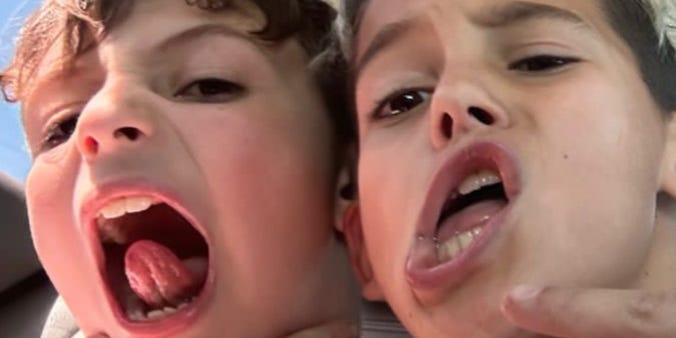I recently met with friends at the mall food court in Salta, Argentina, to catch up after a monthlong trip to the US. As we sat drinking coffee, a group of four boys, aged 10 and 11, roughhoused on the floor beside us. They wrestled, shouted, and shoved each other to the ground, where they writhed around in circles.
People at the mall navigated around the boys on their way to grab lunch or buy clothing. They didn’t bat an eye.
They were our children playing right next to us. Toto pretended to punch Astor. Felipe got sweaty and red-faced, running around to avoid flying fists. My kid, Charlie, well, I’d be lying if I said he wasn’t acting as much like a maniac and a monkey as the rest.
It’s hard to explain the difference between the US and Argentina
“This would never fly in the US,” I told my friends. They were surprised.
The kids weren’t violent. They didn’t break things. There was plenty of space in the food court for their antics. Why shouldn’t they be able to play?
When I asked some US parents what they thought about letting kids roughhouse in public spaces, many responded with anger. One person told me, “Because it’s not your living room,” while another said only negligent parents would allow such behavior.
Kids are part of life in Argentina
Perhaps Argentines are more patient with kids because they’re more accustomed to spending time with them. Children join their extended families for almost every occasion — Sunday dinners, weddings, parties, even graduations. Adults, babies, toddlers, older kids, and teens spend time together as part of regular life.
At 10 years old, Charlie is more comfortable with babies and toddlers than I was the first time I held my daughter Lila when she was born in New York because he’s been around younger kids a lot.
In Argentina, I’ve eaten many leisurely meals in restaurants while my kids played war games around the tables with strangers’ kids. By contrast, worry and annoyance lined the faces of people in restaurants when we took our toddler daughter out to eat in NYC. Luckily, my shy, sweet first child conducted herself well in public, so after their initial upset, people praised us by saying how quiet she was and how she didn’t bother them at all.
In New York a stranger smacked my toddler
I want to raise children who know who they are and speak up for what they want.
A 3-year-old Lila, back in Brooklyn, reached out a tiny finger to touch a brightly colored crocheted bag slung on the shoulder of the woman in front of us. This woman felt the gentle pressure and turned around, smacked Lila’s hand away, and screamed at both of us not to touch her bag.
Of course, touching other people’s things is inappropriate, and I would have taken time to correct Lila’s behavior had this woman not acted so impulsively.
I guide Charlie as best as I can, but ultimately, he has to decide for himself if he’ll touch people’s bags or play war games at the mall’s food court. Like most children, he’ll grow out of his impulsive behavior. With patience, he’ll do it because he understands right from wrong, not because he fears the retribution of adults who want to put him in his place.
I believe that patience is the path to building a kinder society and raising decent, compassionate human beings. And to me, kids deserve all my patience.
Read the full article here
















